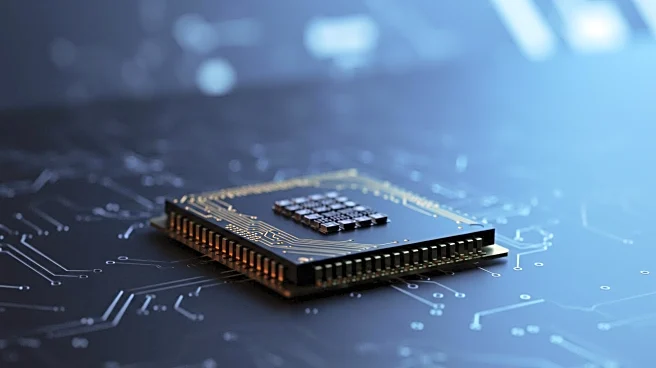What's Happening?
The Trump administration is reportedly considering acquiring a stake in Intel, as part of efforts to bolster the company's financial position and address its technological challenges. This potential move follows discussions between President Trump and Intel CEO Lip-Bu Tan, aiming to revive plans for new Intel factories in Ohio. Intel's shares rose by 7.4% following the news. The administration's interest in Intel is seen as a strategic measure to maintain domestic chip technology, which is crucial for national security. Intel has faced declining sales and market share, prompting layoffs and a reconsideration of its manufacturing business.
Why It's Important?
The potential government stake in Intel highlights the importance of semiconductor technology to U.S. national security and economic stability. By supporting Intel, the administration aims to ensure the retention of domestic chip manufacturing capabilities. This move could also signal a broader trend of increased government involvement in critical industries, reminiscent of past interventions in the auto and steel sectors. The decision could impact Intel's strategic direction and influence its ability to compete globally, particularly against Chinese semiconductor firms.
What's Next?
If the government proceeds with acquiring a stake in Intel, it could lead to increased federal influence over the company's operations and strategic decisions. This might include reviving shelved factory plans and addressing technological gaps. The administration's actions could prompt reactions from industry stakeholders and policymakers, who may debate the implications of government intervention in private sector operations. Intel's future strategies and market performance will likely be closely monitored as developments unfold.
Beyond the Headlines
The consideration of a government stake in Intel raises questions about the balance between private enterprise and national security interests. It may set a precedent for future government involvement in other critical industries, potentially reshaping the landscape of U.S. industrial policy. Ethical and legal dimensions regarding government ownership in private companies could also emerge, influencing public discourse and policy decisions.









